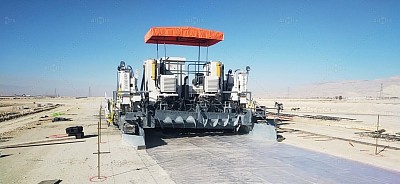Concrete Paving Machine Prices
Concrete Paving Machine Price: Factors That Affect the Cost
Concrete paving machines are essential for road construction, airport runways, and large-scale industrial flooring projects. These machines ensure efficiency, precision, and durability in paving tasks. However, the cost of a concrete paving machine can vary significantly depending on several factors. Understanding these factors can help buyers make informed purchasing decisions that align with their budget and project requirements. Below, we explore the key elements influencing the concrete paving machine price.
1. Machine Type and Size
Concrete paving machines come in different types and sizes, each designed for specific applications. Common types include:
Slipform Pavers – Used for continuous paving of roads, highways, and airport runways.
Fixed-Form Pavers – Suitable for smaller or irregular-shaped areas requiring manual adjustments.
Laser Screed Machines – Used for precise leveling of concrete floors in industrial settings.
Larger and more advanced machines typically have higher price tags due to their increased production capacity and automation features.
2. Automation and Technology Features
Modern paving machines integrate advanced technologies such as:
GPS and Laser Guidance Systems – Improve accuracy and reduce human error.
Automated Controls – Enhance efficiency and minimize operator fatigue.
Hydraulic Adjustments – Allow easy modifications to paving width and thickness.
Machines with these high-tech features tend to cost more than basic models due to the increased efficiency and reduced labor costs they offer.
3. Brand and Manufacturer
Reputable brands often charge premium prices due to their established reliability, durability, and after-sales support. Some of the well-known manufacturers include:
Wirtgen Group
Gomaco
Power Curbers
Sany
XCMG
Aimix Group
Opting for a renowned brand like Aimix ensures long-term benefits, including better machine performance and availability of spare parts.
4. Production Capacity and Output Rate
The production capacity of a concrete paving machine significantly impacts its price. Machines with higher output rates can complete projects faster, reducing labor costs. For example:
A machine capable of paving 500 square meters per hour will cost more than one that paves 200 square meters per hour.
Higher-capacity machines also come with robust engines and enhanced wear-resistant components, increasing their durability and price.
5. Power Source and Energy Efficiency
Concrete paving machines can be powered by diesel engines, electric motors, or hybrid systems. Diesel-powered machines are generally more expensive due to their robust engines and suitability for large-scale outdoor projects. However, electric and hybrid options offer long-term savings in fuel and maintenance costs, making them an attractive investment despite their initially higher price.
6. Customization and Additional Attachments
Many manufacturers offer customization options to suit specific project needs. Additional attachments and features, such as:
Curb and Gutter Attachments
Texture and Curing Systems
Vibration and Compaction Enhancements
These add-ons increase versatility but also raise the overall cost of the machine.
7. Geographic Location and Import Costs
The country of purchase significantly affects the price of concrete paving machines. Factors include:
Import Duties and Taxes – Machines imported from international manufacturers may incur additional costs.
Shipping and Logistics – Transporting heavy machinery can be expensive, especially for overseas buyers.
Local Market Demand – High demand in certain regions can drive prices up, while competitive markets may offer better deals.
8. New vs. Used Machines
Purchasing a used concrete paving machine can be a cost-effective alternative, but it comes with trade-offs. New machines offer warranties, latest technology, and longer service life, while used machines may require more maintenance and have limited warranty coverage. Buyers must weigh the upfront cost savings against potential long-term expenses.
9. Warranty and After-Sales Support
Machines with extensive warranties and strong after-sales support often cost more but provide peace of mind. A good warranty covers essential parts and service costs, reducing the risk of expensive repairs. Manufacturers that offer local service centers and readily available spare parts can also influence the machine’s long-term value.
Conclusion
The price of a concrete paving machine is influenced by multiple factors, including machine type, automation level, brand reputation, production capacity, and geographic considerations. Buyers should assess their project requirements, budget, and long-term operational costs before making a purchase. Investing in a high-quality machine may have a higher initial cost but can lead to significant savings in efficiency and maintenance over time. By understanding these cost factors, buyers can make well-informed decisions and maximize the return on their investment.

